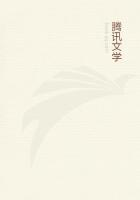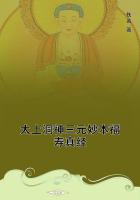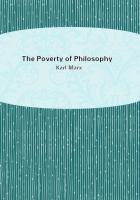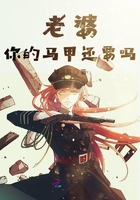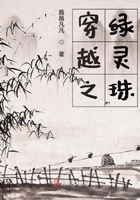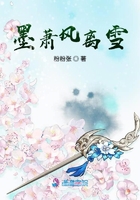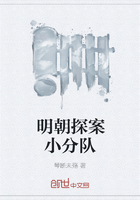On opening her eyes, Mary Stuart thought she had had one of those dreams so gainful to prisoners, when waking they see again the bolts on their doors and the bars on their windows. So the queen, unable to believe the evidence of her senses, ran, half dressed, to the window. The courtyard was filled with soldiers, and these soldiers all friends who had hastened at the news of her escape; she recognised the banners of her faithful friends, the Seytons, the Arbroaths, the Herries, and the Hamiltons, and scarcely had she been seen at the window than all these banners bent before her, with the shouts a hundred times repeated of "Long live Mary of Scotland! Long live our queen!" Then, without giving heed to the disarray of her toilet, lovely and chaste with her emotion and her happiness, she greeted them in her turn, her eyes full of tears; but this time they were tears of joy. However, the queen recollected that she was barely covered, and blushing at having allowed herself to be thus carried away in her ecstasy, she abruptly drew back, quite rosy with confusion.
Then she had an instant's womanly fright: she had fled from Lochleven Castle in the Douglas livery, and without either the leisure or the opportunity for taking women's clothes with her. But she could not remain attired as a man; so she explained her uneasiness to Mary Seyton, who responded by opening the closets in the queen's room.
They were furnished, not only with robes, the measure for which, like that of the suit, had been taken from Mary Fleming, but also with all the necessaries for a woman's toilet. The queen was astonished: it was like being in a fairy castle.
"Mignonne," said she, looking one after another at the robes, all the stuffs of which were chosen with exquisite taste, "I knew your father was a brave and loyal knight, but I did not think him so learned in the matter of the toilet. We shall name him groom of the wardrobe."
"Alas! madam," smilingly replied Mary Seyton, "you are not mistaken: my father has had everything in the castle furbished up to the last corselet, sharpened to the last sword, unfurled to the last banner; but my father, ready as he is to die for your Majesty, would not have dreamed for an instant of offering you anything but his roof to rest under, or his cloak to cover you. It is Douglas again who has foreseen everything, prepared everything--everything even to Rosabelle, your Majesty's favourite steed, which is impatiently awaiting in the stable the moment when, mounted on her, your Majesty will make your triumphal re-entry into Edinburgh."
"And how has he been able to get her back again?" Mary asked.
"I thought that in the division of my spoils Rosabelle had fallen to the fair Alice, my brother's favourite sultana?"
"Yes, yes," said Mary Seyton, "it was so; and as her value was known, she was kept under lock and key by an army of grooms; but Douglas is the man of miracles, and, as I have told you, Rosabelle awaits your Majesty."
"Noble Douglas!" murmured the queen, with eyes full of tears; then, as if speaking to herself, "And this is precisely one of those devotions that we can never repay. The others will be happy with honours, places, money; but to Douglas what matter all these things?"
"Come, madam, come," said Mary Seyton, "God takes on Himself the debts of kings; He will reward Douglas. As to your Majesty, reflect that they are waiting dinner for you. I hope," added she, smiling, "that you will not affront my father as you did Lord Douglas yesterday in refusing to partake of his feast on his fortunate home-coming."
"And luck has come to me for it, I hope," replied Mary. "But you are right, darling: no more sad thoughts; we will consider when we have indeed become queen again what we can do for Douglas."
The queen dressed and went down. As Mary Seyton had told her, the chief noblemen of her party, already gathered round her, were waiting for her in the great hall of the castle. Her arrival was greeted with acclamations of the liveliest enthusiasm, and she sat down to table, with Lord Seyton on her right hand, Douglas on her left, and behind her Little William, who the same day was beginning his duties as page.
Next morning the queen was awakened by the sound of trumpets and bugles: it had been decided the day before that she should set out that day for Hamilton, where reinforcements were looked for. The queen donned an elegant riding-habit, and soon, mounted on Rosabelle, appeared amid her defenders. The shouts of joy redoubled: her beauty, her grace, and her courage were admired by everyone. Mary Stuart became her own self once more, and she felt spring up in her again the power of fascination she had always exercised on those who came near her. Everyone was in good humour, and the happiest of all was perhaps Little William, who for the first time in his life had such a fine dress and such a fine horse.
Two or three thousand men were awaiting the queen at Hamilton, which she reached the same evening; and during the night following her arrival the troops increased to six thousand. The 2nd of May she was a prisoner, without another friend but a child in her prison, without other means of communication with her adherents than the flickering and uncertain light of a lamp, and three days afterwards--that is to say, between the Sunday and the Wednesday--she found herself not only free, but also at the head of a powerful confederacy, which counted at its head nine earls, eight peers, nine bishops, and a number of barons and nobles renowned among the bravest of Scotland.
The advice of the most judicious among those about the queen was to shut herself up in the strong castle of Dumbarton, which, being impregnable, would give all her adherents time to assemble together, distant and scattered as they were: accordingly, the guidance of the troops who were to conduct the queen to that town was entrusted to the Earl of Argyll, and the 11th of May she took the road with an army of nearly ten thousand men.

